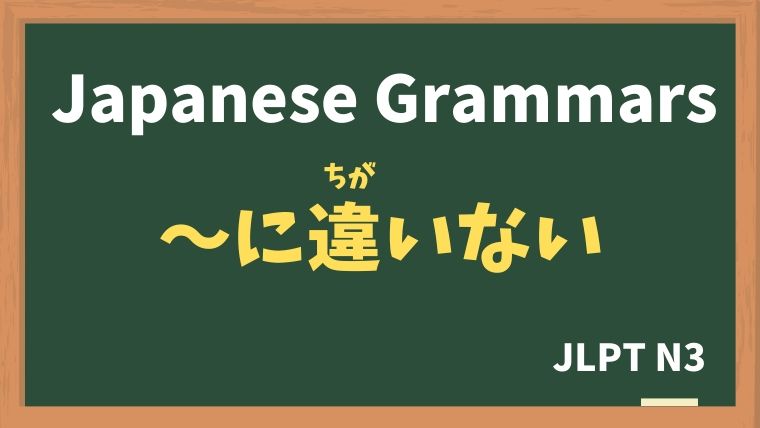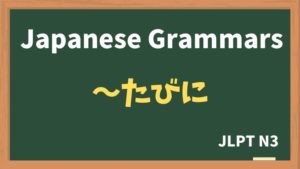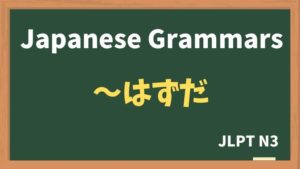
Explanation:〜に違いない(〜にちがいない)
fa-check-circleMeaning
"ぜったいに〜だと思う"
"must be / surely / definitely"
Used to express a strong conviction or certainty about something. It conveys the speaker’s belief that something is definitely true or correct based on evidence, reasoning, or intuition.
fa-check-circleForm
| Structure | Example |
| V(plain form) + にちがいない | 来るにちがいない |
| イA(plain form)+ にちがいない | やさしいにちがいない |
| ナA(である) + にちがいない | べんり(である)にちがいない |
| N(である) + にちがいない | 夢(である)にちがいない |
fa-check-circlePoints
- Certainty: "〜に違いない" indicates a strong belief or conviction that something is the case. It expresses a high degree of confidence.
- Reasoning or Evidence: The expression is often used when the speaker has some reasoning, evidence, or experience that leads them to this conclusion.
- Subjective Judgment: Although it conveys certainty, "〜に違いない" is based on the speaker's subjective judgment rather than absolute proof.
fa-check-circleJLPT Level
N3
Sample sentenes
彼はもうすぐ来るに違いない。
He must be arriving soon.
あの人が犯人に違いない。
That person must be the criminal.
ジェシカさんは5年も日本に留学したから、日本語を上手に話せるに違いない。
Jessica must be able to speak Japanese well because she studied in Japan for 5 years.
韓国語と日本語は文法が似ているから、韓国人にとって日本語はやさしいに違いない。
Japanese grammar and Korean grammar is similar, so It must be easy for Korean to study Japanese.
このあたりはコンビニもないし、スーパーも遠いので、生活は不便に違いない。
There are no convenience stores and super market is far from here, so life must be inconvenient.
彼女はいつもブランドの服を着ているし、外食ばかりするし、きっとお金持ちに違いない。
She always wear branded clothes and she eats out too much, she must be rich.
あのレストランには、毎日たくさんの人が並んでいるので、きっと美味しいに違いない。
That restaurant must be delicious because many people line up every day.
Vocabulary
| Japanese |
English | |
| 犯人 | はんにん | criminal |
| 似ている | にている | to be similar |
| 不便 | ふべん | inconvenient |
| 外食する | がいしょくする | to eat out |
| 並ぶ | ならぶ | to line up |






